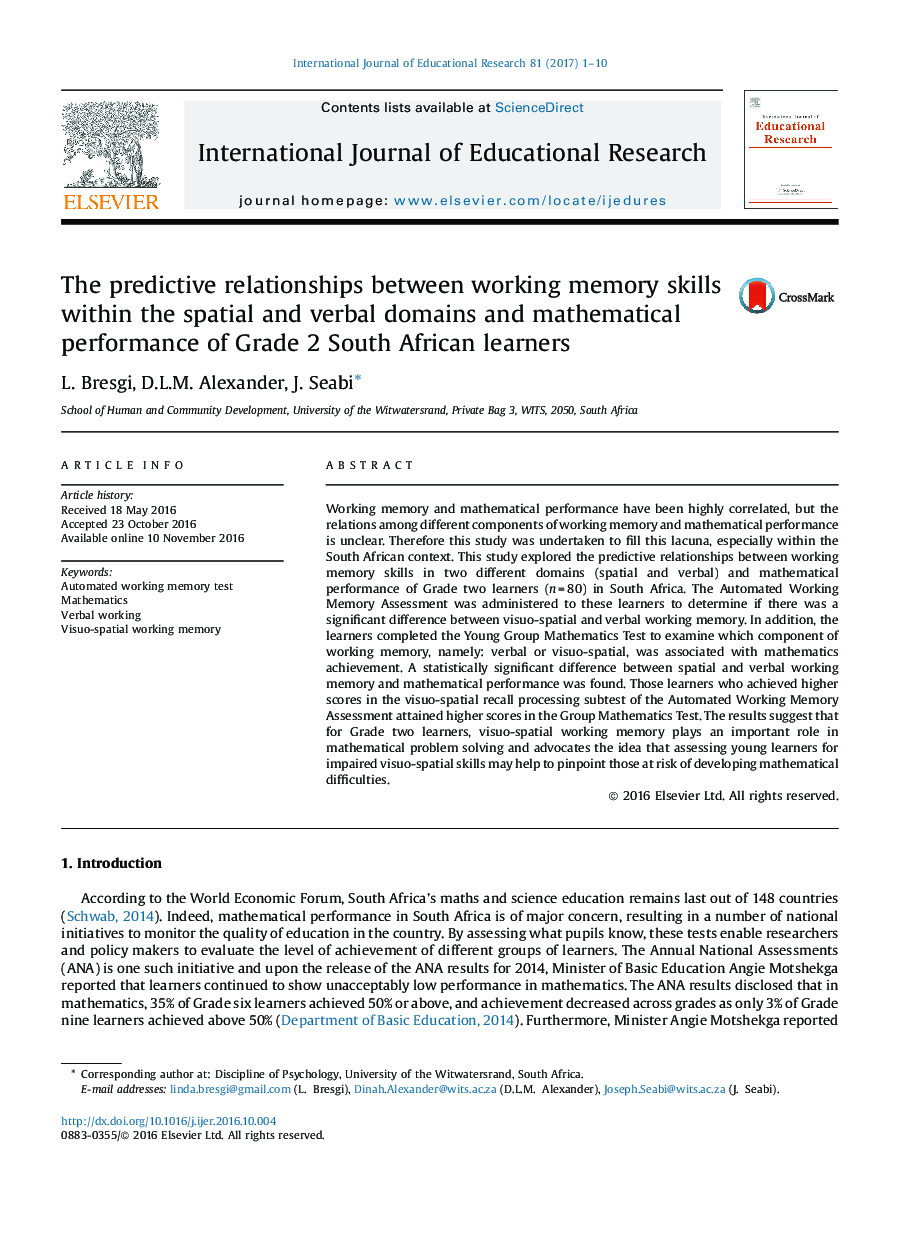| کد مقاله | کد نشریه | سال انتشار | مقاله انگلیسی | نسخه تمام متن |
|---|---|---|---|---|
| 4938598 | 1435409 | 2017 | 10 صفحه PDF | دانلود رایگان |
- The study explored the predictive relationships between WM skills in two different domains (spatial and verbal) and mathematical performance of Grade two learners in South Africa.
- A small, but significant association between visuo-spatial WM and mathematical proficiency in a sample of 80 learners, aged 7-8 years was found.
- This study provided support that verbal WM was not a significant predictor of mathematical performance in children aged 7 years.
- Evidence suggests that in the solving of mathematical problems, the Grade two learners were still reliant on the use of mental models and visual-spatial WM.
- Assessing young learners for impaired visuo-spatial skills may help to pinpoint those at risk of developing mathematical difficulties.
Working memory and mathematical performance have been highly correlated, but the relations among different components of working memory and mathematical performance is unclear. Therefore this study was undertaken to fill this lacuna, especially within the South African context. This study explored the predictive relationships between working memory skills in two different domains (spatial and verbal) and mathematical performance of Grade two learners (n = 80) in South Africa. The Automated Working Memory Assessment was administered to these learners to determine if there was a significant difference between visuo-spatial and verbal working memory. In addition, the learners completed the Young Group Mathematics Test to examine which component of working memory, namely: verbal or visuo-spatial, was associated with mathematics achievement. A statistically significant difference between spatial and verbal working memory and mathematical performance was found. Those learners who achieved higher scores in the visuo-spatial recall processing subtest of the Automated Working Memory Assessment attained higher scores in the Group Mathematics Test. The results suggest that for Grade two learners, visuo-spatial working memory plays an important role in mathematical problem solving and advocates the idea that assessing young learners for impaired visuo-spatial skills may help to pinpoint those at risk of developing mathematical difficulties.
Journal: International Journal of Educational Research - Volume 81, 2017, Pages 1-10
